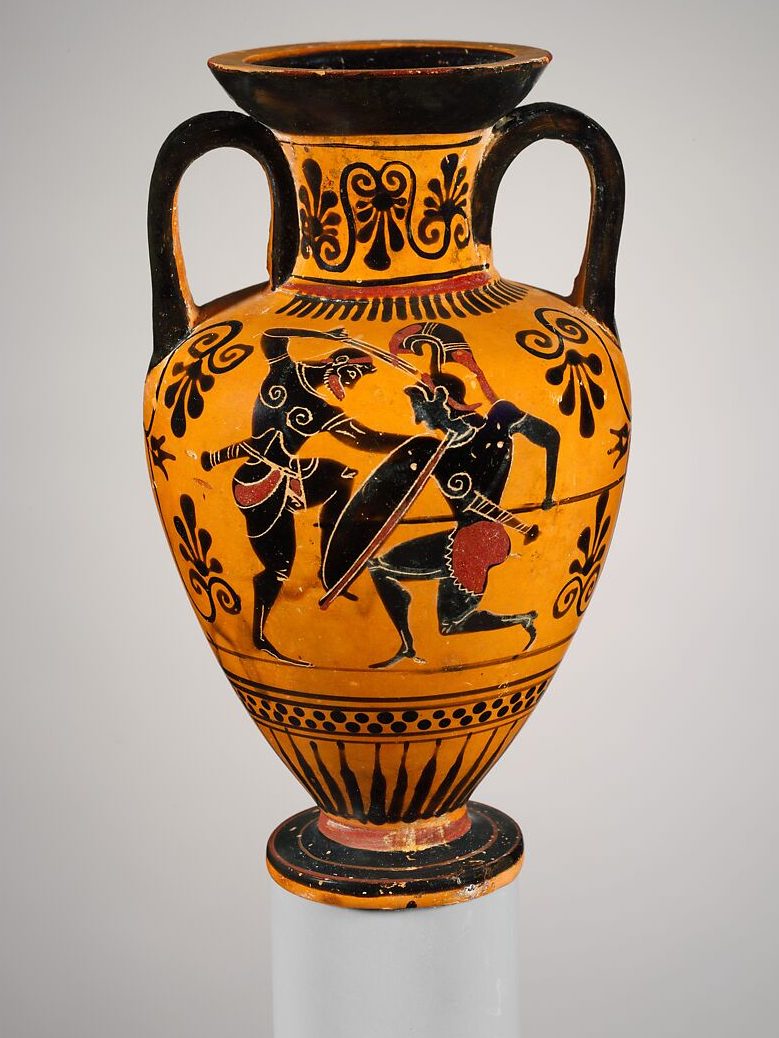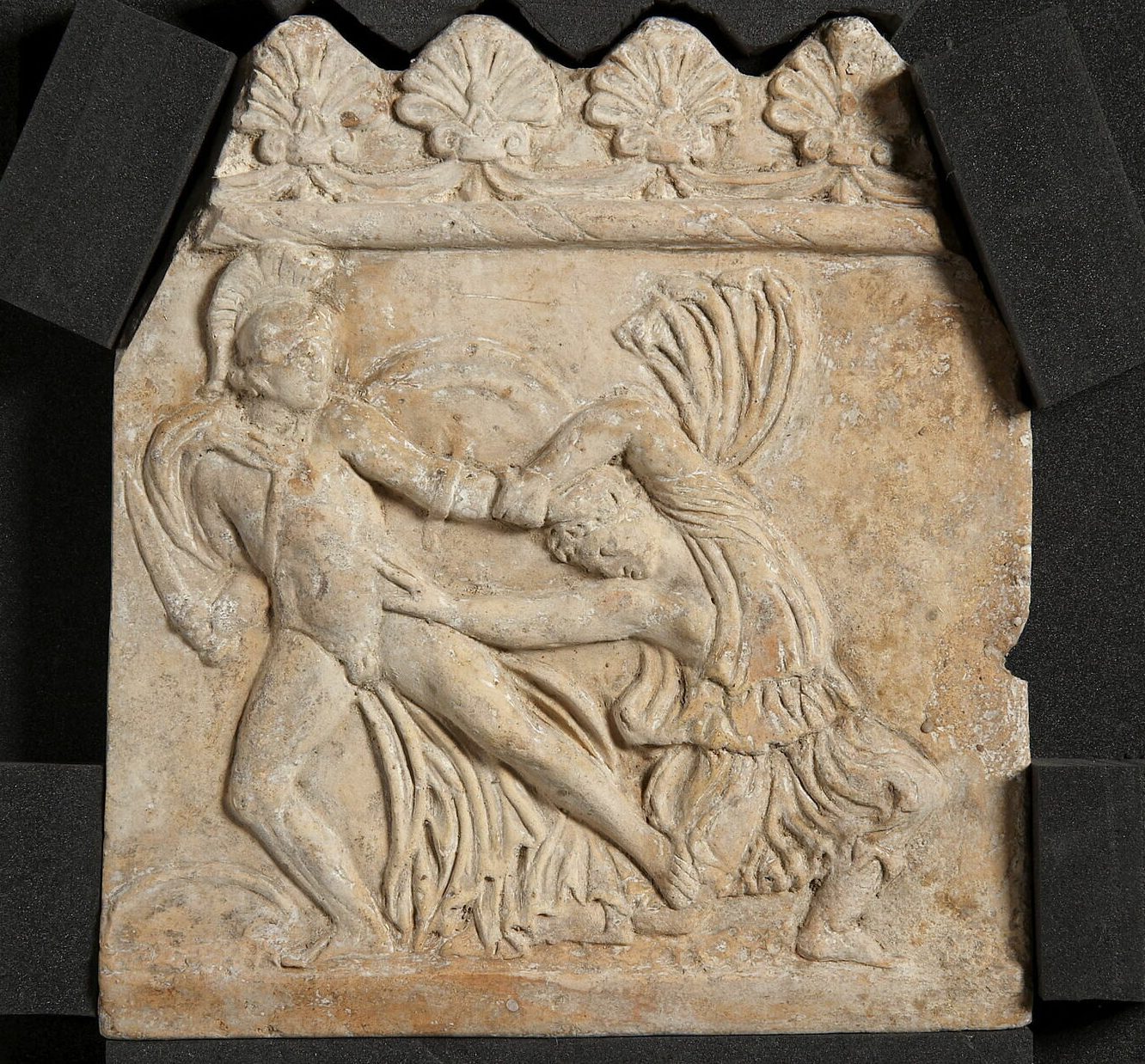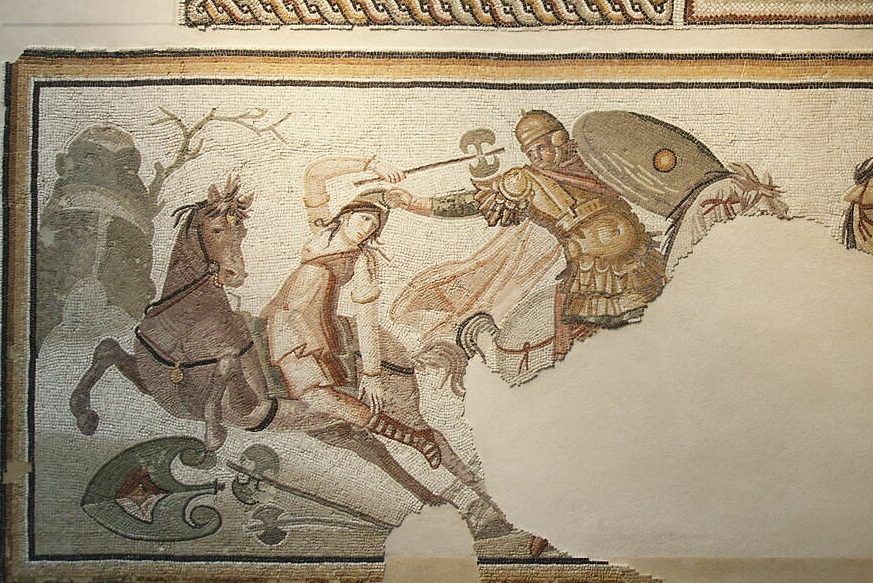Otherness in Greek society
The Amazons were unlike any other figure in Greek myth, being both females and skilled warriors. Their existence alone suggested a certain unnaturalness compared to the patriarchal Greek society championed in Athens. Their categorization of being feared and dangerous warriors at the height of Athens’ political power presents an interesting conception of Greek identity as being “Us” versus “Them.” As historians sought to rewrite and bolster Athenian patriotism and identity, there was no better way than to create a complete reversal of the Greek ideal and for their ultimate defeat in battle by the ideal Greek man.

Otherness: Women
There was no other starker contrast between gender roles than in 4th-5th century Athens. Classical Greece, during this time, remained a strong homogenous society. It demanded active citizen engagement and adherence to specific norms in their private and public lives. Maintaining these divisions became the social framework that influenced political discourse and the sentiment on what qualities the Greeks idealized in the individual.
The elite men participated in governing the state, education in the arts, and service in the military. As the class with the greatest freedoms, this small percentage of people in Athens demonstrated the height of Athens’ political, artistic, and intellectual spheres.

On the other hand, the women were left to the confines of the home, away from the public eye. It was expected of them to manage the household, including their children and slaves. With little social mobility and freedom, they held no legal rights or representation in the political sphere. Women born into respectable families were limited to their birthright as the daughter of their father, the wife of their husband, and the mother of their son.
The Amazons, living in a matriarchal society beyond the bounds of the known Greek world, presented an alternative to the strict patriarchal hierarchy championed in Athens. In different historical interpretations of Amazon groups, some Amazon communities functioned where the men would stay home while the women would go out into battle and hunt. Other accounts write that the Amazons lived in a female-only society, giving sons to their fathers, who lived in a male-only community and raised their daughters. This ideal was by no means met with acceptance. Ancient Greek historians presented the Amazon way of life as the “anti” way of life. It was where the Amazons flourished and ruled, which, to them, went beyond the natural order of the world.
Women were supposed to have no power in the Greek world. In a place just beyond the Greeks, females were the dominating force, and their skills in battle were a good match against the Greek’s own. Various scenarios were created in the myth of what would happen if a Greek hero, a reflection of the ideal Greek man and the city’s values, faced an Amazon. There is Hercules, who comes to Themiscyra seeking the aid of the Amazon Queen Hippolyta to complete his Ninth Labor. There is Theseus, the great hero of Athens, captures the mighty Antiope and takes her to Athens as his wife. There is Achilles, who clashes with Penthesilea during the Trojan War, and her beauty seduces Achilles as she lies dying in his arms, killed by his sword. These myths tell us that the Amazons’ femininity was of interest to the Greeks just as they scorned it. There was no place for the Amazon in the Greek world, an emphasis made clear by the apparent death of the Amazons in all their myths. The Amazon does not survive at the hands of the Greek hero because no one can rival the military prowess and strength of the Greek man.
Otherness: the Barbarian
The rise in an anti-Persian narrative with the Persian Wars correlates to the popularity of an anti-Amazon depiction. Classical Athens fiercely protected their culture and identity, including their rights as pure Athenian citizens. Laws that laid out rules for Athenian citizenship during the 4th century explained and supported the defining characteristics of “Us” and “Them.” Following the laws frames the belief that the rejection or nonacceptance of another person or group of people was based on a specific conception of Athenian identity. Their identity rested on their foundation myth of the state by their patron goddess, Athena. Athenians sprung from the land mixed with Athena’s blood, so only those born from two Athenian parents were considered true Athenian citizens. With their exclusivity, Athens could preserve their strong and flourishing society, free of the taint of the foreigner who came to Greece with their barbarian blood.

There was a constant fear of what would happen if foreigners sought to conquer the Greeks, as the Persians attempted to do so with their invasions of mainland Greece between around 499 BCE and 449 BCE. A narrative was formed around the Persians about them being barbarians and feminine in how they dressed and behaved in battle. As the Greeks rarely wrote about their current events or iconic figures in myth, Amazons became a replacement for the depiction of Perisans in art, and their story in historical records helped explain the origins of barbarians. The Amazon fighting style was inferior to the Greeks because they were women, but also because they were inherently foreigners.
Great Amazonomachies, especially the Battle of Athens, were redefined with a new perspective of foreign aggression on Greek lands. Ultimately, all Amazonomachies ended in Amazon’s defeat because the Greeks believed that the Barbarians were weaker, less sophisticated, and less skilled. In the mythic literary canon, the Amazons were understood not as Persians—as they are often depicted as—but as a first wave of aggressive barbarians from the East. Their representation was sometimes combined with the Greek’s way of generalizing all Barbarians, and the Amazons being the perfect representation of that fact. The Greeks defeated the Amazons in myth, just as they defeated the Persians in reality. This correlation proves to the Greeks that their identity and way of life surpasses all.